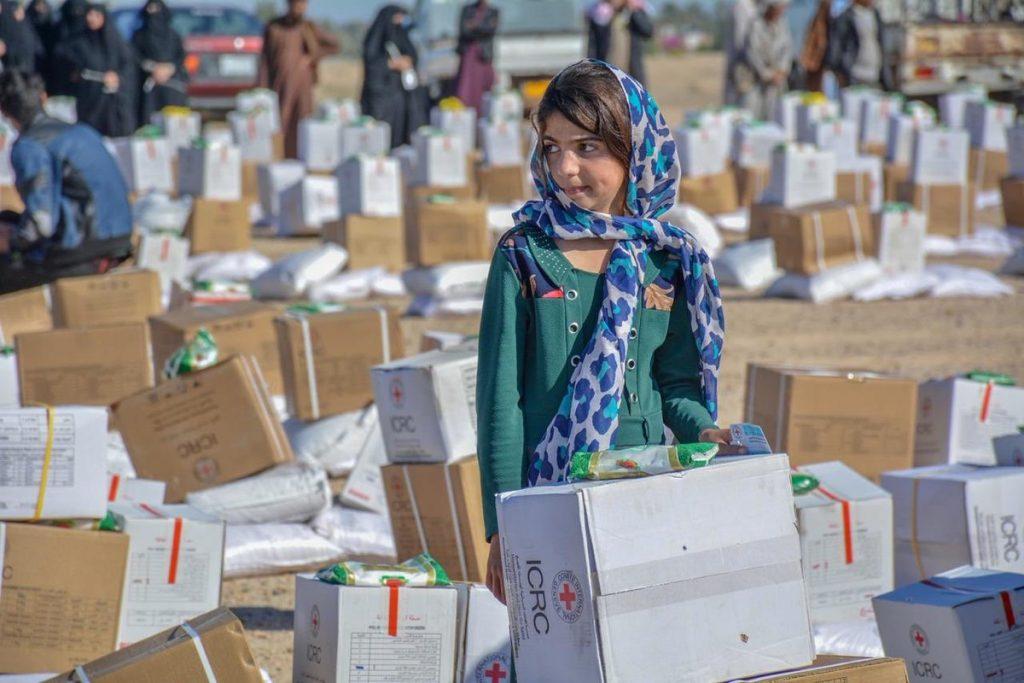
Originally published 16 June 2020.
Earlier this month, I completed my posting in Iraq as head of delegation with the International Committee of the Red Cross. The ICRC is an organisation that addresses the humanitarian consequences of conflict and violence, and promotes respect for the laws of war, known to most by the Geneva Conventions.
Based in Baghdad, I have spent more than four years here in Iraq. I have borne witness to the battles for the control of Ramadi and Fallujah (2015–16) and of Mosul (2017), to the street protests (2019–20) and to the Covid-19 health emergency. Working alongside my ICRC colleagues and the Iraqi Red Crescent Society to help those most affected by the devastating effects of the conflict here has been an experience that I will never forget.
The conflict in Iraq today already sits on top of four decades of fighting that has left hundreds of thousands of people dead and unaccounted for. Countless Iraqis still carry physical and psychological wounds. Many are unable to provide for their families as a result. The suffering has been immense: almost 1.4 million people remain displaced.
The challenges facing the 4.7 million people who have managed to return home after fleeing the fighting are massive. The magnitude of destruction in places like Mosul doesn’t get any less shocking. Overall, approximately one in 10 Iraqis relies on humanitarian assistance. The effects of decades of war in the south may be less immediately apparent, but there are thousands of women who lost their husbands and sons, and struggle to fend for their families as their sole breadwinners.
In the past 40 years, we at the ICRC have done our best to help the most vulnerable, regardless of who or where they are. Today, the long legacy of conflict is compounded by the effects of a global health emergency that is already accompanied by serious consequences for economic and food security.
In a recent survey of some of the most vulnerable families who have already received our support, 98% of 781 people told us their livelihoods have suffered. Needs will continue to grow and we will continue to support the most affected, adapting our ways of working to minimise additional infection risks for the populations that we support and to reduce the exposure of our staff.
One aspect that has stood out in my time here is the resilience and ingenuity of Iraqis in the face of adversity. I have spoken to grandmothers who have adopted orphans and people who have rebuilt their small businesses from scratch. I have seen communities rally to care for their most vulnerable. Amid all the destruction, over the past two years there have been signs of a return to a semblance of normal life. People are clearing their homes of rubble and returning to their fields.
This gives me hope for the future and the confidence that one day Iraq will be able to shed the long-lasting consequences of conflict. For all Iraqis to live in dignity, however, they will need to independently meet their basic needs like food and shelter. And they will require access to services such as healthcare, potable water, improved sanitation and education, as well as livelihood opportunities.
Yet it is essential to look beyond physical reconstruction and economic recovery. The future cohesion and stability of the country depend on achieving social reconciliation and addressing the non-physical scars of conflict. This is a long and arduous path. Both national and international actors have a responsibility to remain engaged, especially as other humanitarian crises flare up in the region and beyond.
A second aspect that has stood out is my firm conviction that the Geneva Conventions and, more widely, international humanitarian law, are as relevant today as they were 70 years ago when they were adopted by a majority of the global community.
If applied, these laws of war are up to meeting the challenges of today’s armed conflicts. While they don’t preclude efforts to defeat an enemy, they align this objective with the need to protect those who are not in the fight—civilians, the wounded, detainees—to ensure that their basic needs are met, and to safeguard their lives, safety and dignity.
The endurance of these rules governing armed conflict are a vivid testimony to the fact that they represent universal values common to all humanity. Quiet, everyday achievements of international humanitarian law may not always be visible to the public. But they take place every day. A wounded person allowed through a checkpoint, a child who receives desperately needed food, detainees able to contact their families, and many other examples—these are the quiet wins of the laws of war. In every instance, they prove that respect for these laws is possible as witnessed every day in contemporary armed conflicts.
The Geneva Conventions, together with wider international humanitarian law, have saved countless lives and reduced suffering across hundreds of armed conflicts over the past 70 years. There is no doubt that wars would be worse without them.
Today I am grateful for the experience of having known such a rich, diverse and hospitable country and wish all Iraqis the very best for the future.